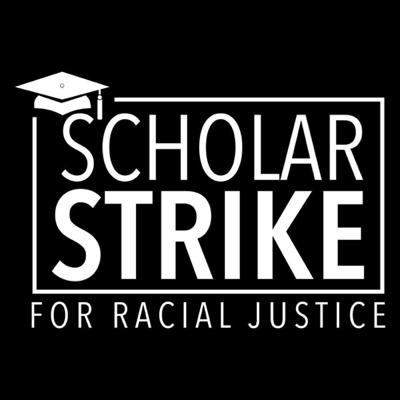Campus News
Antiracist efforts must be ongoing, ever-improving
Antiracist work needs to extend beyond two days or even a summer, and needs to be ongoing, ever-improving, so that we can meaningfully heed the call of our undergraduate and graduate students, as well as our faculty and staff, to be antiracist, dismantle antiblackness, and continue active practices of inclusion so that our BIPOC (Black Indigenous People of Color) communities can be successful and thrive at UCSC.

University of Pennsylvania Religious Studies Professor Anthea Butler was following with admiration the WNBA and NBA strikes in response to the police shooting of Jacob Blake, who was paralyzed after being shot in the back seven times by police officers in Kenosha, Wisconsin. Butler’s response was to send a tweet: “I would be down as a professor to follow the NBA and Strike for a few days to protest police violence in America.” And so #ScholarStrike was born.
Butler was soon joined by a co-organizer, Kevin Gannon, director of the Center for Teaching and Learning at Grandview University, who volunteered to do whatever he could to support her efforts. The two of them sent out a call for the entire higher education community to participate in a two-day action on Sept. 8 and 9, 2020. Over the course of these two days, they are inviting academics to take action in the struggle for racial justice and against police violence against Black Americans. As Butler put it in a Facebook live post, #ScholarStrike is an opportunity for us as academics to “be teachers” and to “contribute something,” to use our skills as educators, practitioners, and advocates in the service of antiracism.
Butler and Gannon have invited colleagues around the country to bring their expertise in any disciplinary field to contribute 10-minute videos that will be screened on a ScholarStrike YouTube channel throughout the two days to raise awareness about policing, police violence, mass incarceration, anti-Black racism, and the struggle for racial justice. A website is providing information about campus-specific actions taking place around the country and even around the world.
For those who don’t feel equipped or able to produce short videos, they recommend a range of other possible forms of action for academics and educators: if you’re a professor, take a picture of your class learning about an issue related to racial justice and post it to Twitter using the hashtag @ScholarStrike or add it to their Facebook page; if you’re a publisher, promote the books in your list that deal directly with anti-Black racism or the history of Civil Rights; if you’re an artist, create something that contributes to antiracist movements and share it on the platform of your choice.
For those who can, they have suggested that instructors don’t teach and that administrators don’t conduct business as usual. Yet Butler is careful not to be prescriptive about what it means to “take action.” Faculty members at UCSC are not teaching right now, for instance, and many contingent faculty members around the country might not feel protected to withdraw their labor by not teaching. Butler’s response is to insist that action can take many forms, and that the point is not so much to withdraw our labor as to “take time out to engage in actions” that contribute meaningfully to antiracist practice.
At UCSC, numerous staff and faculty members have devoted time and attention this summer to antiracist practice and education. Recognizing the importance of cross-divisional, cross-disciplinary work, staff and faculty have participated in discussions to identify action plans that co-create antiracist learning and working climates. Throughout the summer, several divisions and offices have participated in reading groups. The books on reading lists include How to be Antiracist by Ibram Kendi, White Fragility by Robin DiAngelo, and From Equity Talk to Equity Walk, by Tia Brown McNair, Estela Maria Bensimon, and Lindsey Malcolm-Piqueux. Diversity committees across campus have been meeting to identify action plans with diversity initiatives that include educational and professional development opportunities for faculty and staff, as well as continued commitment to diversifying faculty on campus with a goal for co-creating climates that encourage retention—for students, faculty and staff.
What is exceptional about the work being spearheaded by the UCSC Banana Slug community is the recognition that this work needs to extend beyond two days or even a summer, and needs to be ongoing, ever-improving, so that we can meaningfully heed the call of our undergraduate and graduate students, as well as our faculty and staff, to be antiracist, dismantle antiblackness, and continue active practices of inclusion so that our BIPOC (Black Indigenous People of Color) communities can be successful and thrive at UCSC. Units from across the campus are partnering to develop educational and professional development opportunities throughout the 2020-2021 academic year. Topics will include: developing antiracist curriculum and pedagogical practices, facilitating classroom discussions about race and racism and antiblackness, strategies for self-care, inclusive communication skills in classroom and workplace spaces, addressing microaggressions, and more. Some departments have also contracted with external facilitators this coming year to continue in-depth work that they started during the summer.
“I am committed to this antiracist work on an ongoing basis, embedded in everything we do at UCSC,” says Campus Provost and Executive Vice Chancellor Lori Kletzer. “As a public research university and member of AAU, UCSC must work against the tradition and practice of higher education in replicating white privilege. If we do not embrace this work and commit ourselves to it, we cannot claim to be a route to economic and social mobility.”